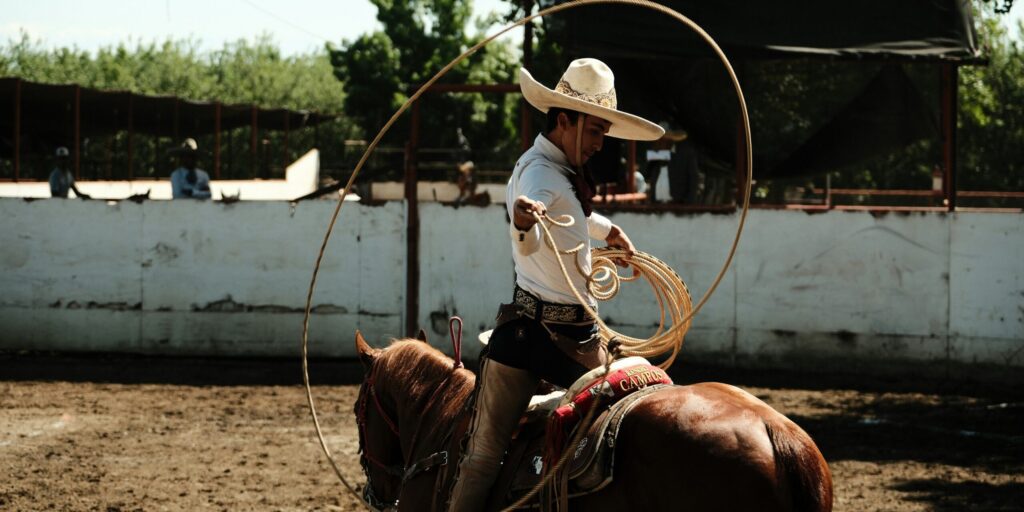SAINT-DENIS — When Beyoncé took the stage in France on June 19 as part of her “Cowboy Carter” tour, she wasn’t just performing music—she was igniting a fashion movement. The superstar’s high-concept, Western-inspired performance in Saint-Denis has set off a dramatic revival in cowboy aesthetics, influencing both streetwear trends and high fashion.
Retail analysts have recorded a stunning surge in demand for cowboy-chic fashion. According to data from PrettyLittleThing, sales of cowboy jackets have soared by 600%, while cowboy boots are up 53% and hat sales have jumped 85%. Similar trends are echoed across other fashion platforms including Boohoo and Kemo Sabe, with Western-themed denim tops, fringe jackets, and wide-brimmed hats flying off virtual shelves.
The catalyst for this renewed enthusiasm? Beyoncé’s unmistakable influence. Her “Cowboy Carter” visual identity blends Americana with glam, featuring double-denim ensembles, custom Levi’s jackets, cut-out jeans, and rhinestone-studded chaps. At her London concert stop, she dazzled in a custom Levi’s cape and bodysuit set, styled in patriotic red, white, and blue and adorned with crystal embellishments. Collaborations with fashion houses such as Moschino, Mugler, and Burberry helped elevate cowboy gear to couture status.
This fusion of traditional Western wear and avant-garde styling has transcended mere fandom. It has reshaped modern fashion aesthetics and redefined the symbolism of cowboy attire, long associated with rugged masculinity, by injecting it with glamour, femininity, and cultural commentary.
Perhaps most striking is the socio-economic ripple effect Beyoncé’s style statement has had, particularly among Black women entrepreneurs. Inspired by her aesthetic, a number of Black-owned businesses have launched or expanded cowboy-themed accessory lines, from custom embroidered hats to fringed handbags and studded belts. Labels such as B.Stone Western Wear and MCD Boots & Things have seen spikes in demand as consumers flock to support brands that align with the Cowboy Carter vision.
This phenomenon—coined by some fashion insiders as the “Beyoncé Bump”—underscores how celebrity-driven trends can translate into real economic growth for marginalized business owners. Industry experts point out that this is not just a style trend but also a cultural reclamation. Black cowboys, often erased from American frontier history, are being re-centered through Beyoncé’s performances and fashion choices, which celebrate their overlooked legacy.
Fashion academics suggest that this moment may reflect a longer-term shift rather than a fleeting trend. “Beyoncé is reframing cowboy fashion not just as nostalgia, but as a living, evolving narrative,” says Dr. Elizabeth Kealy-Morris, a professor of fashion theory. “This is a powerful act of cultural authorship.”
Western wear has experienced cycles of popularity before, notably during country music’s crossover peaks and in festival fashion seasons. But what distinguishes the “Cowboy Carter” movement is its cross-generational, cross-cultural appeal and its visibility on global platforms.
Major retailers are taking notice. Brands such as Forever 21 and ASOS have increased their inventories of Western-themed apparel, while high-end designers are reportedly incorporating cowboy motifs into their upcoming seasonal lines. Meanwhile, the fashion-forward public continues to embrace the style in their own creative ways—from mixing bolo ties with streetwear to pairing leather fringe jackets with high heels.
This fashion wave has also made its way into social media. On TikTok and Instagram, users are showing off their interpretations of the cowboy-chic aesthetic using hashtags like #CowboyCarter and #WesternRevival. Tutorials on styling Western-inspired outfits have proliferated, often highlighting how to emulate Beyoncé’s looks affordably or sustainably.
Critics of the trend have raised concerns about commodification and the risk of reducing cowboy culture to mere spectacle. However, many supporters argue that Beyoncé’s approach—steeped in cultural knowledge, collaboration, and historical reference—offers a model for how pop culture can respectfully revive and reinterpret heritage fashion.
As Beyoncé continues her European tour, the “Cowboy Carter” fashion effect shows no signs of slowing. From Paris to Dublin, fans are embracing their inner cowgirl or cowboy, not just as a nod to a musical icon, but as an act of style, empowerment, and cultural celebration.
Whether this cowboy revival will have staying power remains to be seen, but for now, it’s clear that Beyoncé has once again bridged the gap between fashion, music, and cultural influence—turning the dusty trails of the American West into fashion’s newest frontier.


